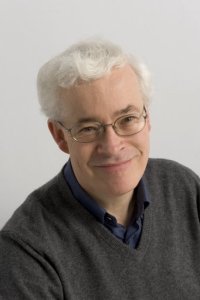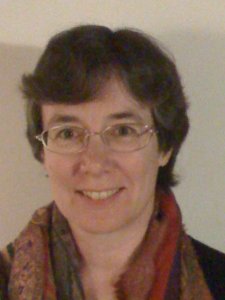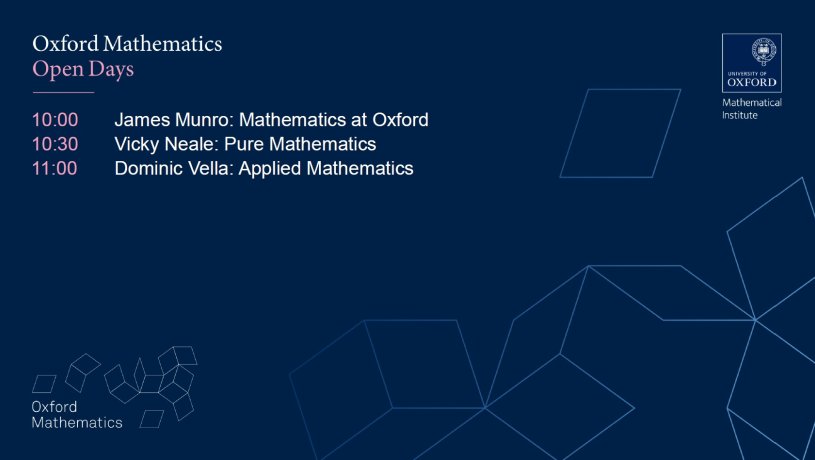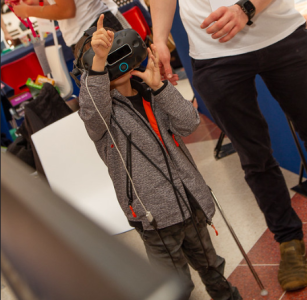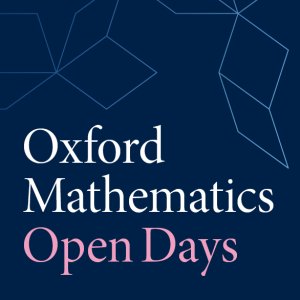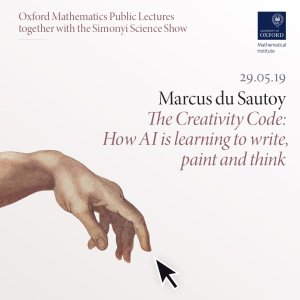Getting tied up in knots, experimenting with bubbles, playing board games, doing origami, experiencing dimensions in virtual reality, exploring historical mathematical instruments and sorting out teddy bears. These were just some of the mathematical activities enjoyed by over 1000 visitors to the Oxford Maths Festival during the weekend of 11-12 May 2019.
On the first day, Saturday, a group of staff and student volunteers from Oxford Mathematics and Oxford's Dept of Statistics were in Templars Square Shopping Centre in East Oxford. Shoppers were rather surprised to find themselves exploring playful and unexpected aspects of maths at the various stalls. Barney Maunder-Taylor, of House of Maths, had eager audiences of children for his highly engaging maths shows and the historical mathematical artefacts brought by the team from the Oxford History of Science Museum certainly caught the imagination. Shoppers were also able to don virtual reality headsets to explore dimensions or try out the many puzzles and mathematical curiosities on show at the different stalls.
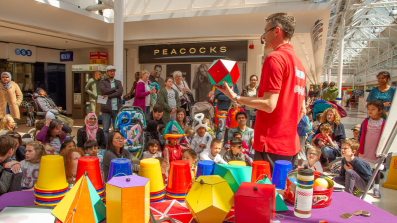
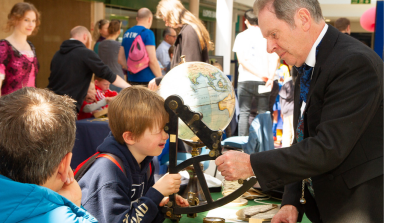
As a visitor said "It was inspiring & impressive to see people of all ages so engaged. All those running exhibits were ace at making maths accessible to all. The 4yo loved it, didn't want to leave & giggled his way through." And the student volunteers were equally pleased (and a little surprised perhaps) “The local people seemed to be really interested - the response is way more positive than I had expected.”
Saturday evening saw the action move to the Andrew Wiles Building, home of the Oxford Mathematical Institute, as teams raced to complete the first ever Oxford Mathematics Escape Room. They just made it in time for day two of the Festival, which saw around 600 visitors enjoy a range of activities in the Mathematical Institute. The team from the Oxford Maths Observatory (our secret maths lab) welcomed visitors on the famous Penrose paving with experiments giving a glimpse of the power of maths to understand bubbles. Once inside the building, children and adults alike could choose from a wide range of activities. The mathematical craft room was very popular, with a constant stream of participants wanting to try their hands at mathematical origami, curved stitching, mathematical braiding and mathematical colouring designs from books by Alex Bellos and Edmund Harriss. The board games were no less popular, with visitors able to play popular games such as SET, Hanabi, NMBR9, Tantrix and many more. Games designer Educational Games were on hand again with City of Zombies.
The OR Society team's Lego Factory was also very popular, and the student volunteers had their hands full all day with the Hands-on Family Maths activities, many from the NRICH website. Matt Parker, of Numberphile fame, gave a typically witty and brilliant talk, and Kyle D Evans' Maths Madness family show received rave reviews.
Local MP Anneliese Dodds clearly enjoyed herself: "After two days of intensive outreach activity (one of which I enjoyed today), I hope all involved with the @OxMathsFest are now putting their feet up! Great to see maths being brought to life for all ages."
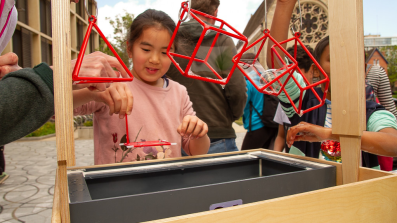
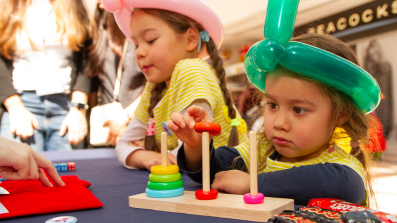
Over the course of the weekend, over 65 staff and student volunteers were involved, in addition to all those who helped with the planning and preparation. One of the volunteers said “Most people think mathematics is really boring and that when you're studying the subject you just sit in the library reading some books without any real purpose. This event shows both us, mathematicians, and the participants that it can give you a lot of entertainment. Even if we encouraged just one person to do mathematics, that can really mean a lot for someone and change their life.”
Professor Alain Goriely, Director of External Relations for Oxford Mathematics said: "Mathematical knowledge is critical to the future of our society. But too often we are told that people's mathematical curiosity is lost at an early age. The Oxford Maths Festival is doing its bit to put that right."
Perhaps the Oxford Maths Festival 2019 is best summed up by this visitor, who said: “Thank you for organising and holding such a wonderful event that promotes the importance and fun of exploring maths. My family had a fantastic time, and we can't wait for next year.”
Oxford Mathematics is committed to communicating the breadth and depth of mathematics to a wide audience, and the Oxford Maths Festival is fast becoming a central part of the offering for the local community. We are grateful to the supporters and sponsors whose help and funding enabled the event to go ahead: Mathematical Institute, Department of Statistics, Van Houten Fund, Olamalu and the Public Engagement with Research Seed Fund. We are also grateful to Barney Maunder-Taylor, Matt Parker, Kyle Evans and the OR Society, and to NRICH for the quality hands-on activities.
If you or your company are interested in sponsoring a future Oxford Maths Festival, then please contact Mareli Grady.



